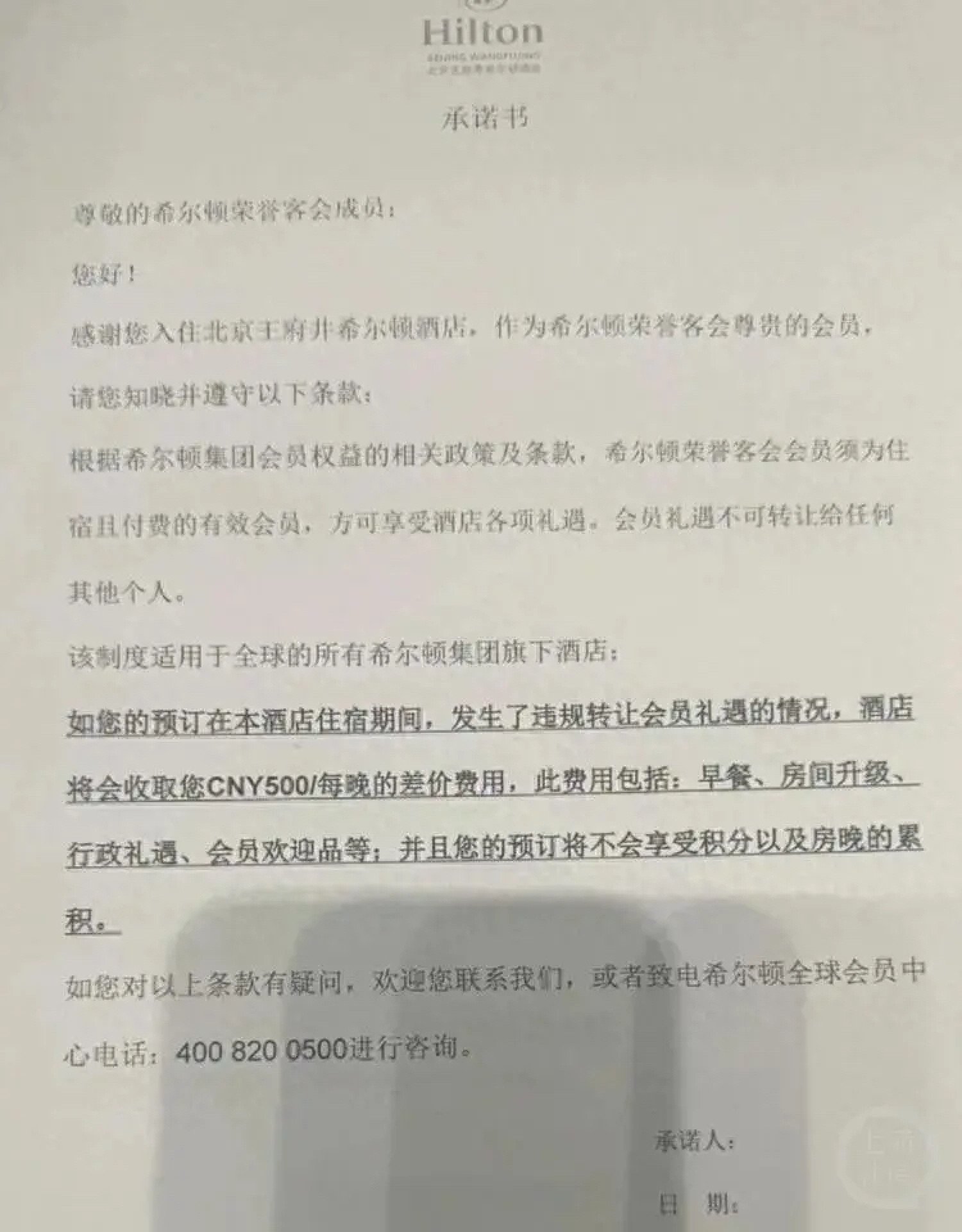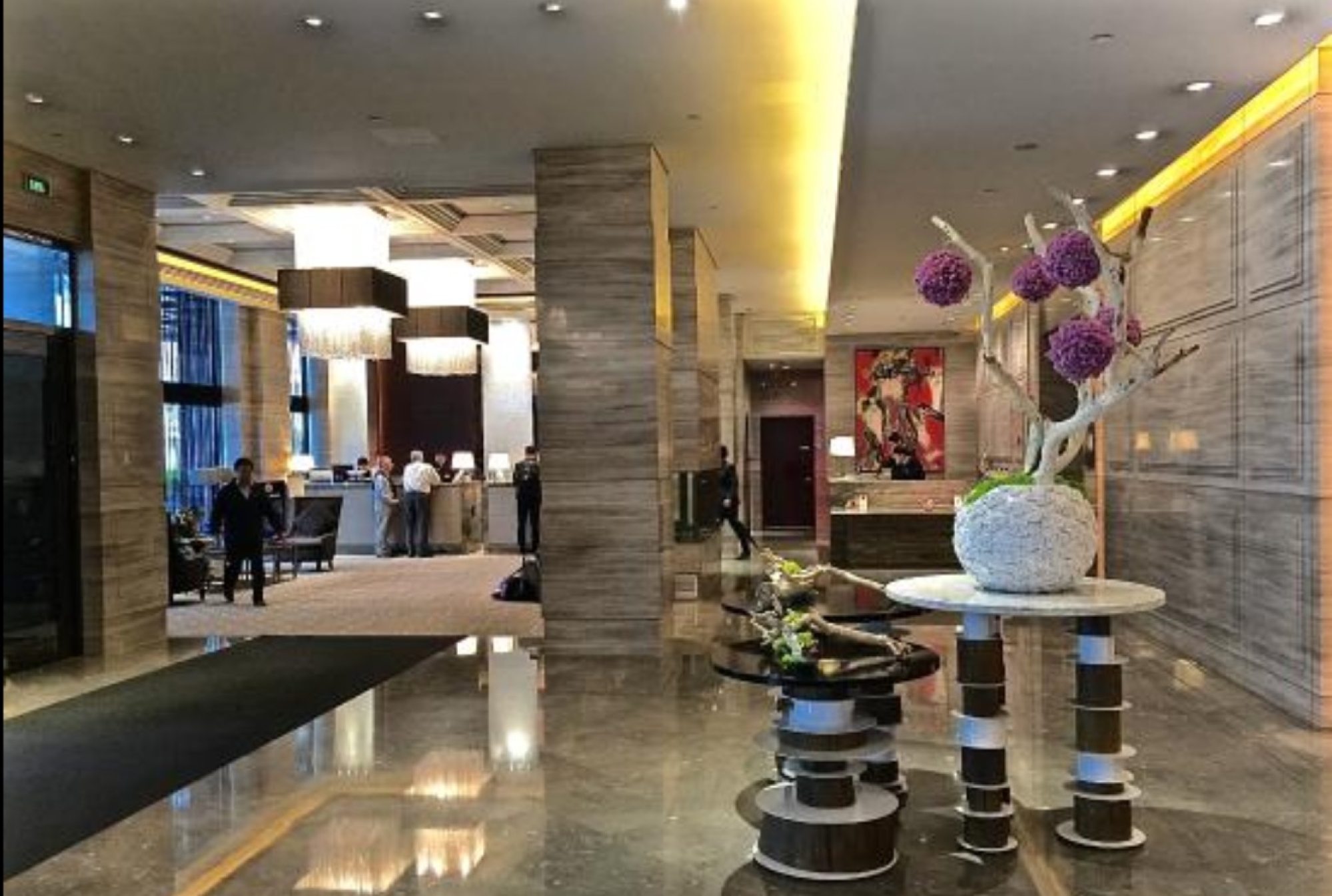
‘Room re-sale’ row: VVIP guest at posh China hotel fined US$415 after surveillance footage reveals no overnight stay
- Guest stays outside of room at night because of ‘time difference’ tiredness
- Online observers dub posh hotel a ‘police station’ due to strict monitoring
A guest who checked into a Hilton Hotel in China’s capital has been fined 3,000 yuan (US$415) after surveillance cameras showed that he did not actually stay on the premises overnight.
The fine was imposed because hotel staff suspect he was a “room reseller”, who sought to profit by giving the room, and the benefits it came with, to another person.
The guest, surnamed Tang, a VVIP member, booked two rooms for three nights starting from May 9 at the Hilton Beijing Wangfujing for himself and his family.
During check-in, he signed a “commitment letter”, promising not to transfer member benefits during their stay.
The commitment letter said: “If your reservation involves the unauthorised transfer of member benefits during your stay, the hotel will charge you an additional 500 yuan per night. This fee includes breakfast, room upgrades, executive benefits, and member welcome amenities.”

Tang, who is a frequent Hilton guest, said: “When they presented the commitment letter, I didn’t suspect anything, I just signed it.”
However, after checking out, he received a call from the hotel manager who claimed that surveillance footage showed that he had not stayed in his room overnight.
This resulted in an additional charge of 3,000 yuan, 500 yuan per room per night for three nights, which was deducted from his deposit.
Tang was astonished and explained that he had not returned to his room at night because he was adjusting to the time difference and spent his nights out, only returning during the daytime to rest.
“It is unreasonable to assume that I transferred my member benefits just because I did not stay overnight,” he told Hangzhou Daily.
He also blasted the hotel’s 24-hour video surveillance of guests as ridiculous and questioned the fairness of the commitment letter, which he had not encountered at other Hilton hotels.
“The content of this commitment letter unilaterally restricts consumer behaviour. Does the Hilton Beijing Wangfujing’s practice of monitoring overnight stays and charging an extra 500 yuan per room per night violate consumers’ privacy rights and the Consumer Protection Law?” he asked in an interview with The Paper.
On May 30, the hotel told the Post that the case was currently under investigation and an official response would be provided soon.
A representative from the Hilton Global Membership Center gave a similar response.
The story has triggered an online backlash, even earning the hotel the nickname “Hilton police station”.
One online observer said: “Is this hotel being run like a university dorm or a high school dorm? Are the reception staff acting as dormitory supervisors?”
The controversy has also highlighted the issue of the unauthorised transfer of member benefits and rooms.
“Opportunists” exploit these benefits to book rooms and resell them for profit.

Some people online, while suspecting Tang might have been such a “room reseller”, have suggested measures to combat the problem.
One person said: “Such reselling activity harms the hotel, creating security vulnerabilities due to mismatched guest and booking information. If something happens, the hotel is liable.”
Another said: “If Tang resells the room, the real guest might not have registered, and the hotel does not want to say it outright because it could lead to police involvement.
“Otherwise, it’s unlikely they would charge for not staying overnight.”
Tang has received a full refund of 3,000 yuan from the hotel after filing a complaint to the hotel’s headquarters.

